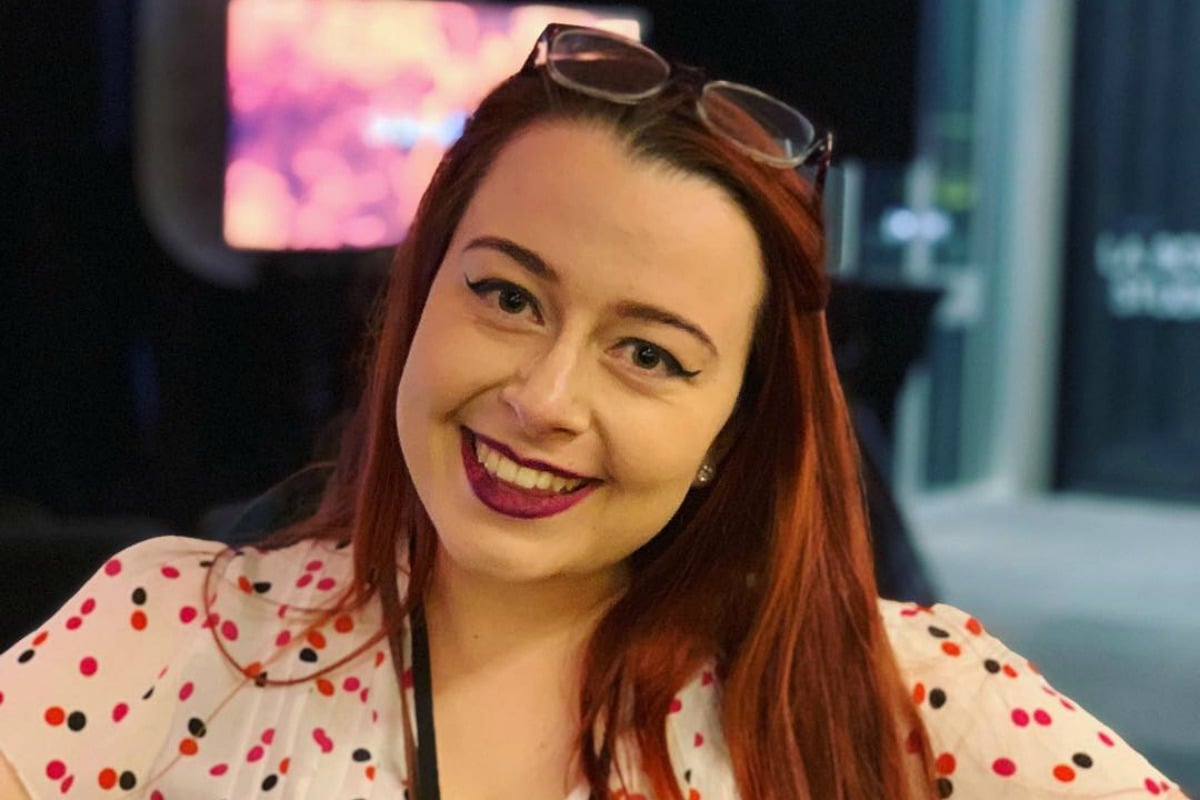
It wasn’t until I met proud disabled people that I discovered I could be proud of myself, too.
For most of my life, I had only known disability and disability identity through the media, or the lens of those teaching me.
These people were able-bodied, neurotypical teachers, teacher aides and physiotherapists who mostly knew disability from working with children with disability, not from experiencing it themselves. Their messaging echoed that of mainstream media; disability is a bad thing, something to be pitied and ashamed of. Everything must be done to ‘overcome’ it.
Mamamia sits down with for a cup of tea with Stella Young. Despite her death in 2014, her legacy lives on. Post continues after video.
To this day, the stories that circulate far and wide are largely built on devastation or grief. “I had to grieve the child I lost when he was diagnosed with autism” or “everyday I live with the shame of being different”. These stories are popular because they elicit sympathy.


Top Comments
I coordinate a clinic that offers maternity care for women with disabilities. I was involved in the initial research project as to how maternity services could better suit this cohort of women and the inception of the clinic within in our maternity services and have now been supporting pregnant women and parents living with disabilities for 16 years. We recognise disability as an individual situation like you have highlighted in this article. We support women to independently care for their babies using a strength based approach and by empowering women in the care. We enhance strengths and problem solve barriers. Barriers such as societies view around parenting with a disability and bridging gaps to assist women parenting with disabilities by assisting referrals to agencies that can assist with adaptive equipment such a cots and prams etc that best suit their needs . Quite often it’s simple things like appropriate height cots or cot side openings for wheelchair access. Things that abled parents and the wider community take for granted. It’s not that people with disabilities can’t parent often they just need barriers addressed.
I have multiple orthopaedic and neurological congenital problems. I managed pretty well as a young person, even managing to become a nurse. Once I could no longer nurse, I went to TAFE, did an office administration course and two months after finishing, got a job as a specialist medical secretary, a job I did for doctors in five different specialties, retiring at 66.
My parents refused to let me take advantage of my problems and insisted I live as normal a life as possible. I often thought they were cruel at the time but now, I thank them from the bottom of my heart. During my time in medicine, I saw so many people with minimal disabilities whose only objective was to get a disability support pension and government housing. They had no interest in finding a career they could manage and thereby live a full and rewarding life. Back pain does not mean that you can’t work. I know. It didn’t stop me. I knew a totally blind man who was a switchboard operator back in the day at Newcastle uni.
Now I’m in my 70s though, I’ve fallen in a heap. I’m barely managing with a stick. My husband’s terrified every time we go out because I’m so wobbly and wants me to use the walker he bought. The doctors I see are telling me I should be in a wheelchair, for my safety.
Unless it’s happened to you, nobody has a clue how horrible it is to finally have to signal to the outside world that you’re not able bodied. I hate it but there’s no point in carrying on about it. I choose not to get depressed or negative. I focus on what I can do and do it.
The biggest upside to being disabled is the people who approach asking if you need help. I’ve discovered that the world’s full of brilliant people and I love meeting them. I wouldn’t change anything about my life or my body. Well, perhaps I’d stop my hair from falling out. Lol. I’ve done everything I wanted to and being like this has made me much more understanding and tolerant.
Use your walker, both for tour safety and your husband's peace of mind. Kudos to you for not choosing the path of victim and you certainly must have had some grit to have completed nursing when you were not in perfect health.
But Susie if I hadn’t done what I did, my life wouldn’t have been so rich (not in money) and fulfilling. The memories are amazing. Every day I’m reminded of something wonderful or funny and my husband and friends love hearing my stories. Imagine if I hadn’t gone down this path. I’d be sitting here now feeling sorry for myself and wondering why everyone else has such a wonderful life and I’m so unlucky. I’d be thinking I’ve never done anything or been anywhere and it’s not fair.
I knew I only had one big trip in me, so in 2009, we did a 22 day tour of the UK and Ireland. Getting in and out of the coach was an exercise in hilarity but carried out with so much humour and good will by the tour guide and passengers, that I never felt like a nuisance. I have wonderful memories of that as well, such as the poor old drunken woman in a pub in Ireland, who insisted on hauling herself out of her seat and lurching across the floor to help me out of my seat, all the while telling me what a ‘poor darlin’ I was. Memories like that really are priceless. If I’d gone down the victim route, I’d have missed all that.
And I’ll take your advice and start using the walker. Eventually. 😀😀